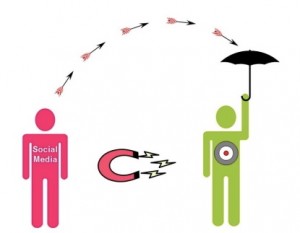If one day Microsoft goes belly up, I suspect it will have a lot to do with the company’s irrational obsession with Google. It’s true that Microsoft had lost plenty of talent to Google. According to the Google Story book (Delacorte Press), Microsoft CEO Steve Ballmer had once said: “I’m going to fucking kill Google”. But in this pursuit of deadly competition and revenge, Microsoft has lost sight of the market and its own strengths. Here is a synopsis of what I think Microsoft is doing wrong.
(1) The pursuit of Google is vastly different from a few years back when Microsoft beat Netscape with its dominance in the operating system market. At that time, the Internet was just starting to happen, and with the small number of users, Netscape had not taken a strong hold of the mass market. Today’s situation is very different. The Internet has become ubiquitous, and Google has much more muscle than Netscape did in the old days.
(2) Yes, the search market is important, and Google’s success has demonstrated the power of search marketing. But search engine is what has already happened. Even though Google has not been around for that long, by Internet age, it is getting old. With the fast pace of innovation in today’s environment, rather than pursuing something that has already reached a mature stage, it makes much more sense to create and invest in what’s to come.
(3) There is no dispute that online advertising has been growing very fast (see “Online Statistics” section in the right panel for recent ad revenue statistics). Microsoft Wanted to get a piece of the pie, hence its offer to buy Yahoo. Yahoo rejected the bid earlier this week. While this may be perceived by some as bad news for Microsoft, it is really good news, because the merger would not have made sense any ways. Microsoft has never been a strong content provider. Its fundamental business is not in the area of “eyeball” business but rather about affecting people’s way of computing. Going after the advertising market is not what Microsoft does best and will be more like a waste of its resources rather than help.So what should Microsoft do instead? Coming up in Part II, I will offer my analysis of the opportunities that lie ahead for Microsoft.
